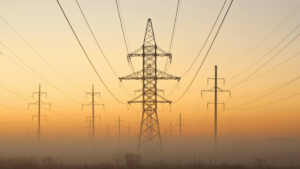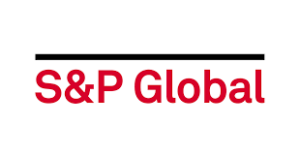
Starting November 9, NPC Ukrenergo will temporarily suspend payments on its debt obligations under green sustainability bonds, the company said.
“This technical solution will be in effect until the planned debt restructuring is completed in the coming months. “Ukrenergo, together with the government of Ukraine, is taking all necessary measures to reach an agreement with bondholders in the near future,” the company said on Facebook on Wednesday.
Earlier, the Experts Club information and analytical center released a video about the defaults of countries and businesses – https://youtu.be/gq7twYrWuqE?si=4cgn_L9RC0Nm0xl5

American Tupperware Brands Corp., known for its plastic food storage containers, has filed for bankruptcy.
“Over the past few years, the company’s financial position has been severely impacted by the challenging macroeconomic environment,” said Tupperware CEO Lori Ann Goldman.
The company’s shares have fallen by 75% since the beginning of 2024.
Tupperware initiated bankruptcy proceedings in accordance with Article 11 of the US Bankruptcy Code. The company needs court approval to continue operations and speed up the process of selling the business while protecting its brand.
Tupperware was founded in 1946 by chemist Earl Tupper, who developed airtight plastic containers to help American families preserve food and save on costs. The company’s products are distributed through direct sales by Tupperware consultants around the world. The so-called “Tupperware parties” – events for cooking together using the company’s products – have also gained popularity.
In recent years, however, Tupperware has been experiencing serious difficulties, facing a decline in demand for its core products, increased competition, and a lack of liquidity, the WSJ notes.
Recently, the Experts Club information and analytical center released a video on the history of defaults and a table of countries that may face the risk of default in the medium term.
Watch the video on the Experts Club YouTube channel for more details: https://youtu.be/gq7twYrWuqE?si=KneYUbl2rNOUIGTM

The number of company defaults in January-February this year in the world reached 29 – the maximum since 2009, according to S&P Global.
Including in the U.S. the number of corporate defaults amounted to 17, in Europe – eight.
The global average for the same period in 2010-2023 slightly exceeds 16.
S&P attributes the rise in defaults to weak consumer demand, rising wages amid labor shortages and high interest rates.

NJSC Naftogaz Ukrainy has announced a default on its eurobonds due to the government’s refusal to agree on payments on them.
“The deadline for payments to holders of Naftogaz Eurobonds expired on July 26 without payment taking place,” the company said in a press release published on Tuesday evening.
Naftogaz said that the Ukrainian Cabinet of Ministers had earlier on July 21 issued order No. 625-r obliging Naftogaz officials to seek Cabinet approval before executing any transactions related to the company’s eurobonds.
In its official letter to the government, Naftogaz indicated the availability of the necessary funds in its accounts to cover eurobond payments. Naftogaz officials also detailed the possible negative consequences for the company and for the country in the event of a hard default on eurobond payments.
The company said that in response, the Cabinet of Ministers failed to provide permission for Naftogaz to fulfill its payment obligations to eurobond holders for either the 2022 issue or the 2024 issue.
“The government has therefore defaulted on Naftogaz eurobond payments. As this failure to meet its eurobond obligations effectively deprives Naftogaz of access to international capital markets, the Cabinet of Ministers as the responsible party now assumes full responsibility for raising the funds necessary for the import of natural gas for the 2022-2023 heating season,” the company said in the press release.

Ukraine will start preparing a new program of cooperation with the International Monetary Fund (IMF) in July, Ukrainian President Volodymyr Zelensky has said.
The press service of the President of Ukraine reported on Tuesday that Zelensky during a meeting with large- and medium-sized businesses in Germany confirmed the cooperation of Ukraine with the IMF, the World Bank and the European Bank for Reconstruction and Development (EBRD).
“We are starting an agreement with the IMF, we will prepare a new program in July, there will be no default,” the president of Ukraine said.
He also said that, as president, he would not influence the courts or the banking system.
As reported, Deputy Head of the Presidential Administration Oleksiy Honcharuk said in an interview with NV.Business ezine that Ukraine is preparing for a possible launch of the new three-four-year program of cooperation with the IMF at the end of 2019.
On June 13, 2019, IMF Spokesperson Gerry Rice said in Washington that the IMF expects the completion of parliamentary elections in Ukraine to continue negotiations on further cooperation with the country. Rice recalled that in May the IMF mission worked in Kyiv, which had initial discussions with Zelensky.
The IMF Executive Board, following a meeting on December 19, 2018, approved a new program of cooperation with Ukraine under the Stand-By Arrangement. The amount of the 14-month program is equivalent to SDR 2.8 billion, or about $3.9 billion. Some SDR 1 billion (about $1.4 billion) was provided immediately, while the remaining funds will be provided based on the results of the program reviews in 2019.
The IMF mission worked in Ukraine in May, but left without recommendations on the provision of the new tranche. Head of the mission Ron van Rooden said that the IMF mission is ready to return to Kyiv after the parliamentary elections and the formation of a new government. The IMF team found that fiscal and monetary policies remain on track.